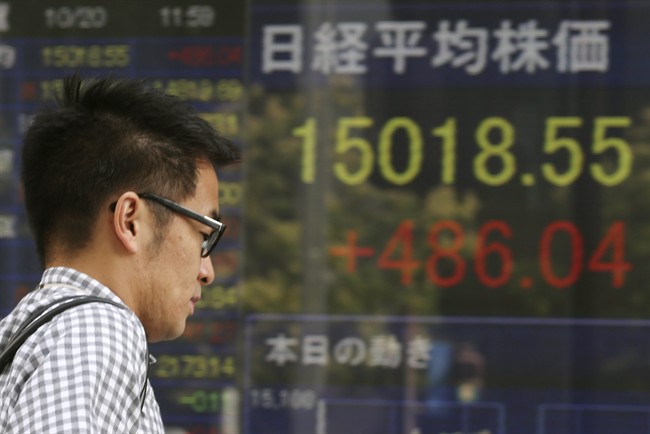WASHINGTON – In explaining its surprise move Friday to inject more stimulus into the financial system, the Bank of Japan cited one main factor: prices that are too low.

Japanese central bankers worry that prices are starting to flat-line, especially amid tumbling crude oil costs and lacklustre consumer demand. The BOJ warned that without action, Japan could find itself slipping back into the same “deflationary mindset” that has hampered the world’s third-largest economy for much of the last two decades.
READ MORE: Canada’s economy unexpectedly shrinks as oil production stalls
Extremely low inflation might seem like a healthy quality for an economy. Stagnant prices certainly feel better than the double-digit inflation that bedeviled the United States in the 1970s. But excessively low inflation can be just as destructive for an economy as runaway price increases.
READ MORE: Price growth to slow again — which isn’t great for economy, experts say
The BOJ and other major central banks regard 2 per cent as a healthy long-term inflation target. The latest data for Japan showed that a gauge of core inflation, which excludes volatile food and energy prices, fell shy of even 1 per cent.
That’s in part what compelled the central bank to expand its purchases of government bonds and other assets by between 10 trillion yen and 20 trillion yen (US$91 billion to US$181 billion) to about 80 trillion yen (US$725 billion) annually. By pumping more money into the economy, the government hopes to raise expectations of higher inflation and thereby encourage people to spend and fuel growth.
READ MORE: As retailers ramp up bargains, some see new danger in falling prices
Here’s more on why low inflation can be unhealthy for an economy:
- When prices barely move, many people and businesses postpone purchases. Why rush if the same price – or lower – will be available in six months? Collectively, such delays slow consumer spending, the economy’s main fuel.
- When prices don’t rise very much, neither do company sales or salaries. That is, workers won’t receive higher pay if their employers’ profits aren’t expanding.
- It magnifies debt burdens. When income remains stagnant or even drops, then paying the interest on loans becomes a heavier financial burden.
- Too-low inflation raises the prospect of something worse: deflation, a broad decline in prices, pay and the value of stocks, homes or other assets. Deflation can further restrain spending and even tip an economy into recession.



Comments